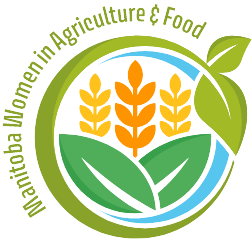
Photo by Jessica Rockowitz on Unsplash
by Angela Lovell
In agriculture, particularly when it comes to the division of roles that women and men assume on the family farm, they are often still allocated according to habit or tradition. As in other sectors, there are jobs that people consider stereotypical male roles – operating and maintaining equipment for example – and others that women are often expected to take the lead on – caring for children or doing the books etc.
Dr. Sonia K. Kang, associate professor of organizational behaviour and HR management at the department of management, University of Toronto and Dr. Joyce He, assistant professor at UCLA, have done collaborative research that sheds some light on how those gendered stereotypes developed, and how they are changing.
“The idea of the strong, masculine prototypical man that existed when the idea of the ideal worker came into play are very different from the kind of masculine ideal that men now want to see themselves as,” Kang says. “There’s a lot of tension there, where men feel this pressure to be super masculine and get things done. In the family farm context, that’s a lot of pressure to be the person who’s running that farm and responsible for everyone else. They react to that but don’t necessarily like it.”
Assigning roles by skills and interests, not gender.
Kang suggests that to help overcome these issues, people should assign roles and responsibilities not based on family, gender rules or perceived obligations but on skills and interests.
“It’s about being aware that biases might be filtering the path that people are taking, and making men aware that they’re trapped in this masculine world as well,” Kang says.
Although her research into gender issues has not focused specifically on agriculture, Kang sees many parallels to other sectors with the same issues and traditions, noting that agriculture is built on foundations like land ownership, male-hierarchies and roles that entrench gender bias.

Sonia Kang
“Agriculture is tied to very traditional masculine attributes,” Kang says. “Having dominance over land is a male stereotypical thing, and interacting with markets, financial management and all of these different things already have the foundation as being a man’s world. I think this is particularly relevant in the family farm scenario where it’s probably the case that it’s the men who the farm is generally handed down to.”
Although it’s a broader problem, that isn’t limited to agriculture, gender issues are intensified on farms and other family businesses because there is a high level of reliance on family labour.
“Because of that, it runs into the general trouble in our society where we don’t count women’s household labour,” says Dr. Mara Fridell, assistant professor of sociology at the University Manitoba. “The pandemic really showed the ways in which we overcount some very masculine work and undercount a lot of feminized work.”
Don’t turn women into men
In many sectors, where women have aspired to advance in roles typically dominated by men, they have approached the barriers by attempting to get on the same footing as their male counterparts, but the issue really comes down to how we value the work that men and women do.
“Women have tried to act more like men to take on masculine roles because of an inherent overvaluing of men’s roles,” Kang says. “But instead of trying to get women to turn into men, we need to really understand and see the value of the work that women are doing. If we put value on the tasks that women are doing then they are no longer invisible, those tasks rise to the surface, and that visibility has the potential of making sure that tasks are split more equitably.”
How do women make sure that their unpaid work is recognized and valued? Read our next blog post by Angela Lovell – Valuing women’s unpaid work.
(Some content from this article was also published in Country Guide as The Equitable Farm by Angela Lovell)
Read our previous blog on the topic of women and gender roles: What is women’s work?




